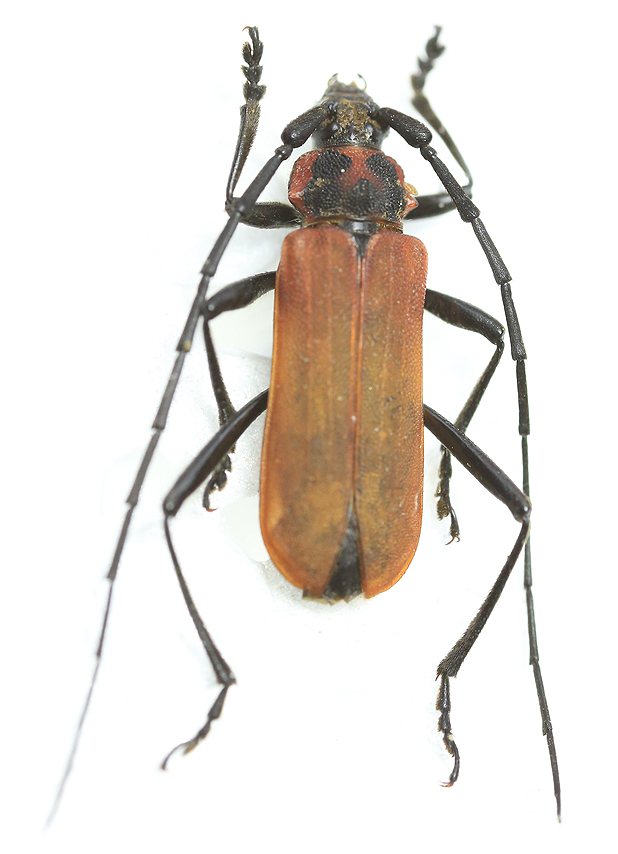| T O P I C R E V I E W |
| nalslan |
Posted - 08/01/2014 : 06:46:14

or something else? Thanks.
Addition:
It looks similar to Falsanoplistes borneensis Hayashi, 1969 (see figure 6 in Vives 2013. Notas sobre algunos Purpuricenini asiaticos (Coleoptera, Cerambycidae))
But the latter is recorded in Tawao, Malaysia. |
| 8 L A T E S T R E P L I E S (Newest First) |
| nalslan |
Posted - 18/01/2014 : 08:22:26
I learned that there are black hairs on prothorax of P. spectabilis, but not P. temminckii. I have not got any individual of P. spectabilis yet.
Here are a couple of P. temminckii for you and Thomas' reference.
This one is form Jiangsu province of China, from a place a little east of Nanjing

and three from Guizhou province showing red, yellowish elytra and tiny black dots on elytra.
  
|
| Francesco |
Posted - 14/01/2014 : 14:05:50
Another specimen with a similar pattern is present in Hua et alii (Iconography of Chinese Longicorn Beetles) p. 49 Fig. 574, as P. spectabilis... I do not know if correctly identified. |
| horshehden |
Posted - 14/01/2014 : 13:42:49
OK, so it can be anywhere in Central Sechuan.
Probably, it appears early in spring, since I have never found it in Sechuan.
Do you have a specimen with similar color pattern also from other provinces? |
| nalslan |
Posted - 14/01/2014 : 02:43:06
Thomas, it is from Chengdu, but no elevation data, I think you can call it a subtropical area.
|
| horshehden |
Posted - 13/01/2014 : 20:18:40
Which part of Sechuan? Elevation, etc? A subtropical part? |
| Francesco |
Posted - 13/01/2014 : 15:23:48
That article could be downloaded here.
Notice that the P. temminckii of Fig. 35 has a completely black pronotum, while that of Fig. 39 has a central pattern similar to an inverted "Y"... like your specimen... and Falsanoplistes borneensis |
| nalslan |
Posted - 13/01/2014 : 14:54:56
Francesco, you are the man!!!
You are always very helpful! I also lost my track to that Danilevsky's paper, and found Vives's instead. That IS an interesting finding.
Thank you very much.
|
| Francesco |
Posted - 13/01/2014 : 08:52:36
sorry Naslan, I lost a lot of time searching that paper... I should make a some order in my documents!
Very interesting finding.
The insect was described from a single specimen (here) intercepted in Kobe harbor (Japan) inside woods coming from Sabah.
According to Vives, the species is far enough from Falsanoplistes and might deserve a new genus ... well, but it seems however similar to Purpuricenus!
It also shows two obliterate spots on the elytra corresponding to some varieties of this species.
Have you also read Danilevsky's (2013) paper about this Purpuricenus-group?
|


